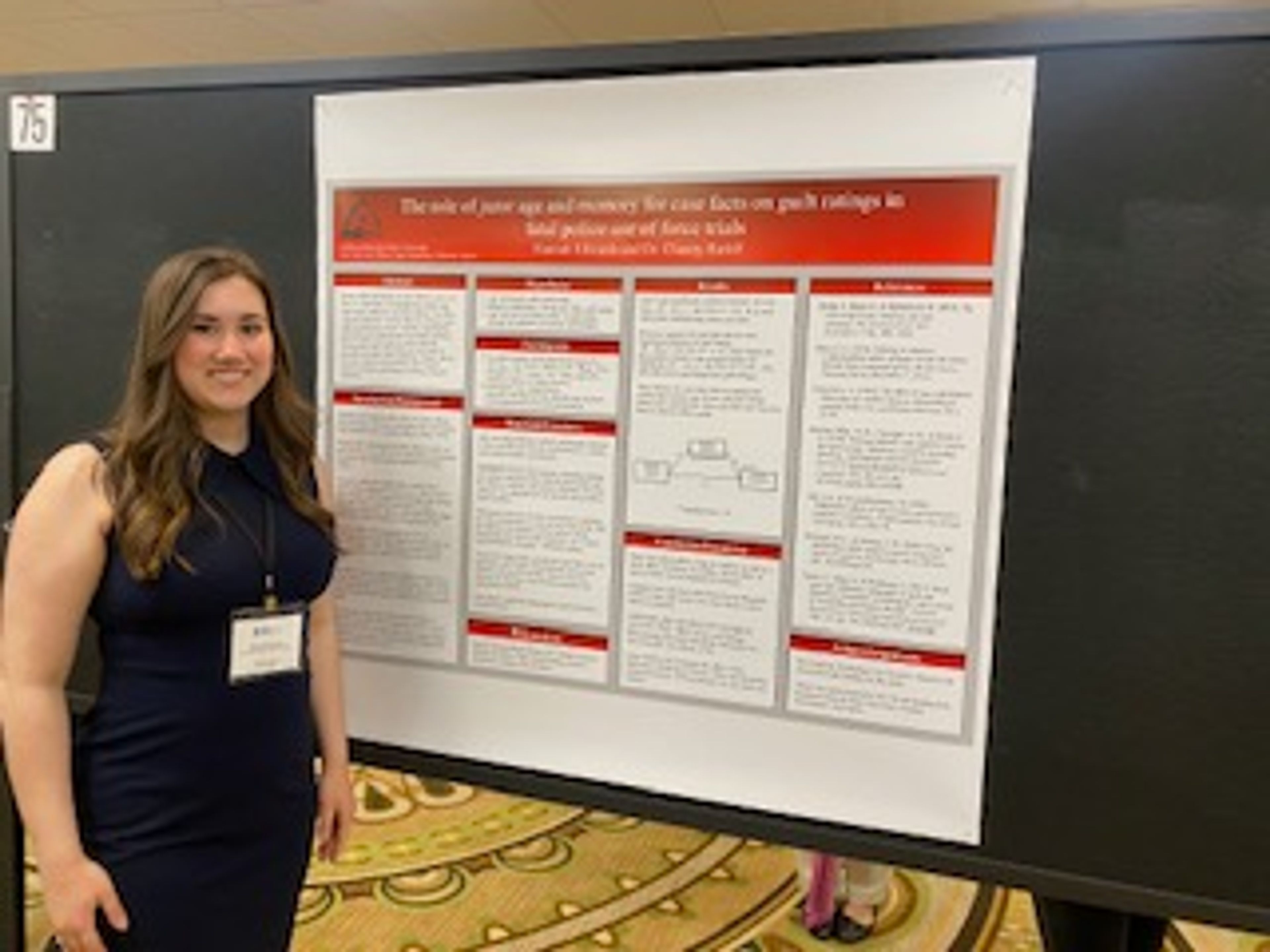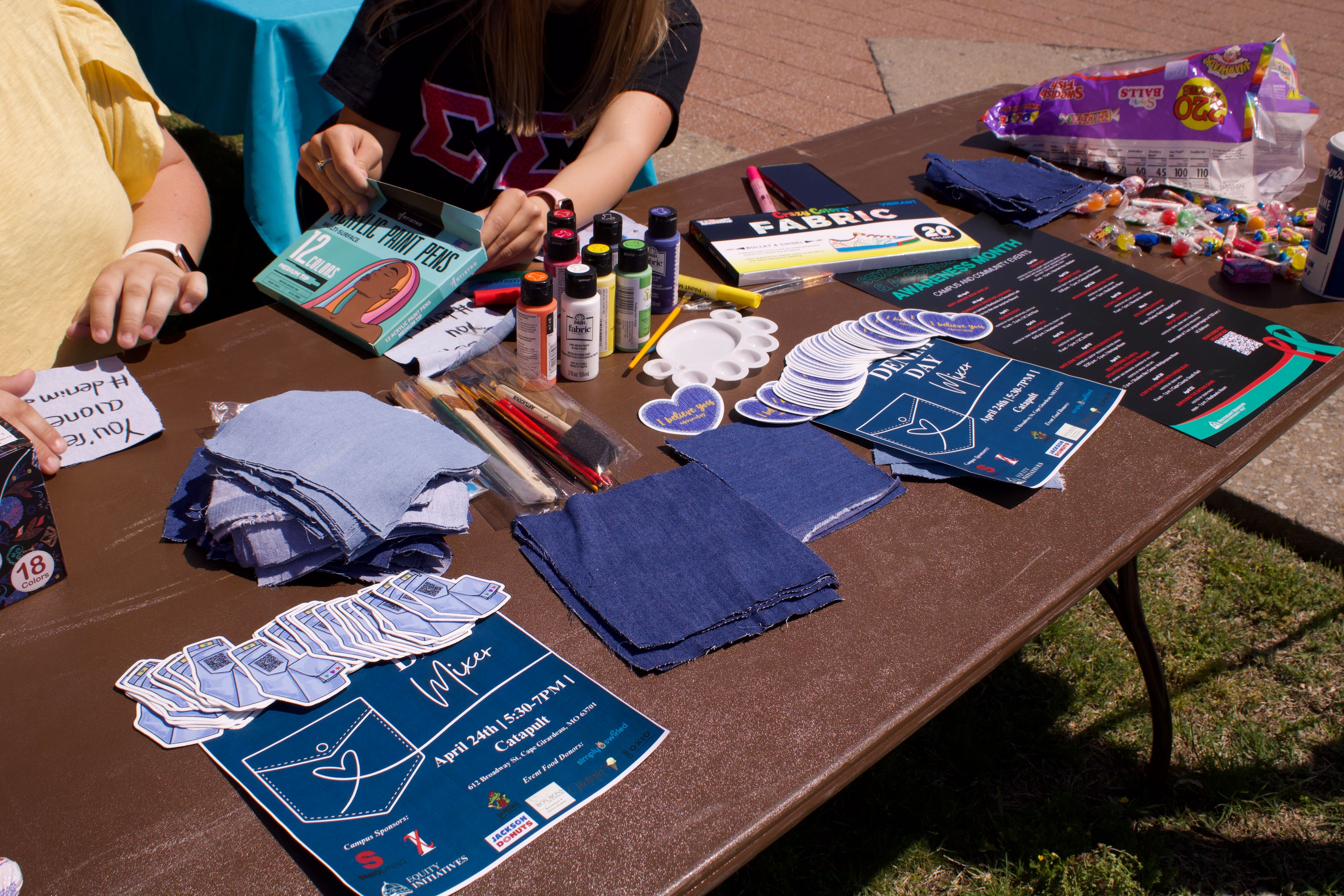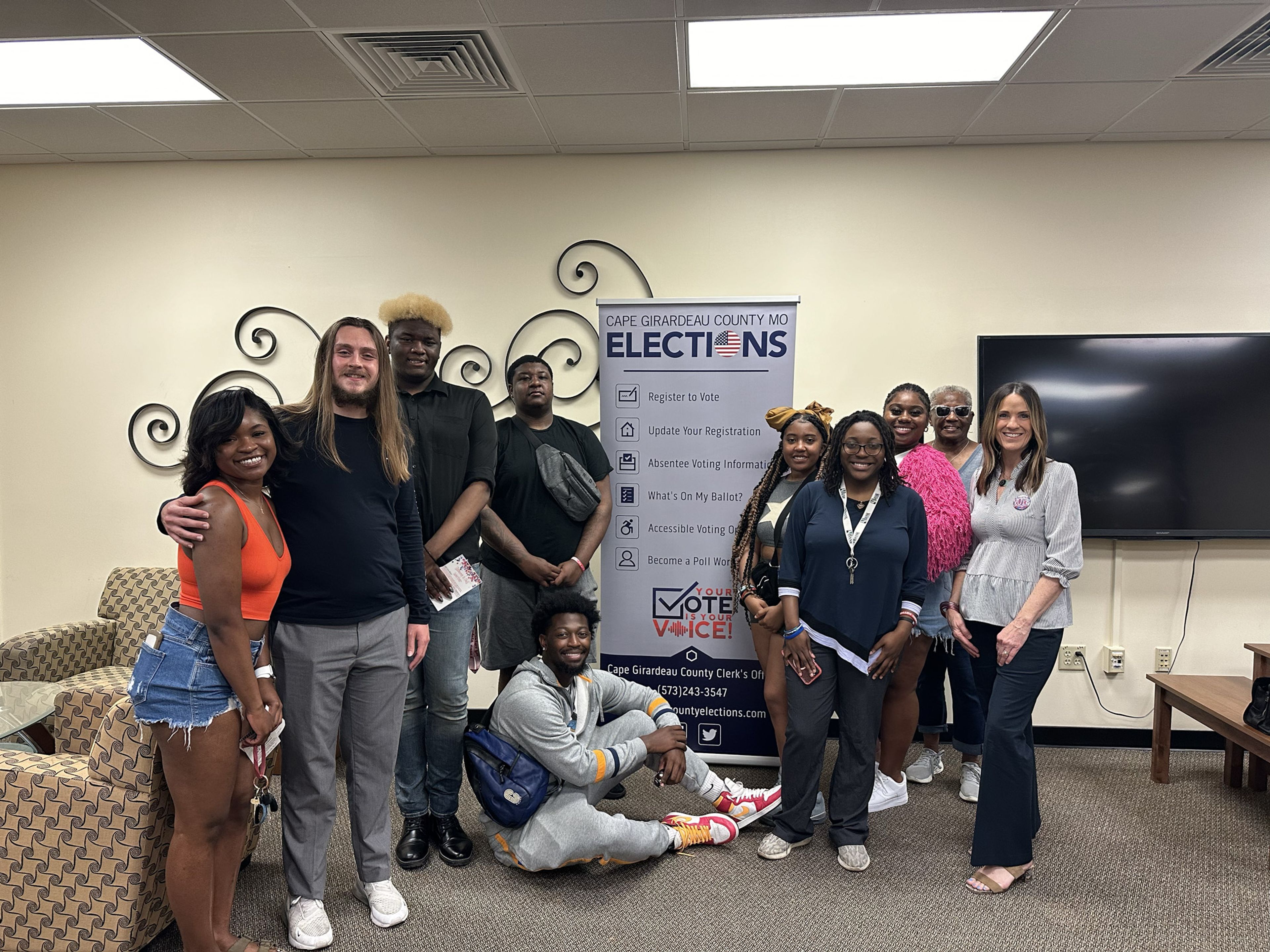For children, the science fair is one of the most critical events in their academic careers, allowing them to show off weeks of hard work and research. Adults rarely get the chance to display their efforts in the same way.
For many students, the excitement of science fairs is left behind when they move on to college, but that is not the case for the students in the psychology department at Southeast Missouri State University.
These students are given the opportunity to conduct real-life research projects over the course of months with the ultimate goal of being hand-selected to present their findings at the Midwestern Psychology Association conference, one of the most prestigious meetings of psychologists in the country.
This April will mark the 96th anniversary of the conference held in Chicago. Last year, the conference hosted over 1700 research presentations, including several keynote speakers. MPA features numerous lectures from some of the leading psychologists in the country and allows for psychologists, students and members of the public to network and covers all elements of the science of psychology.
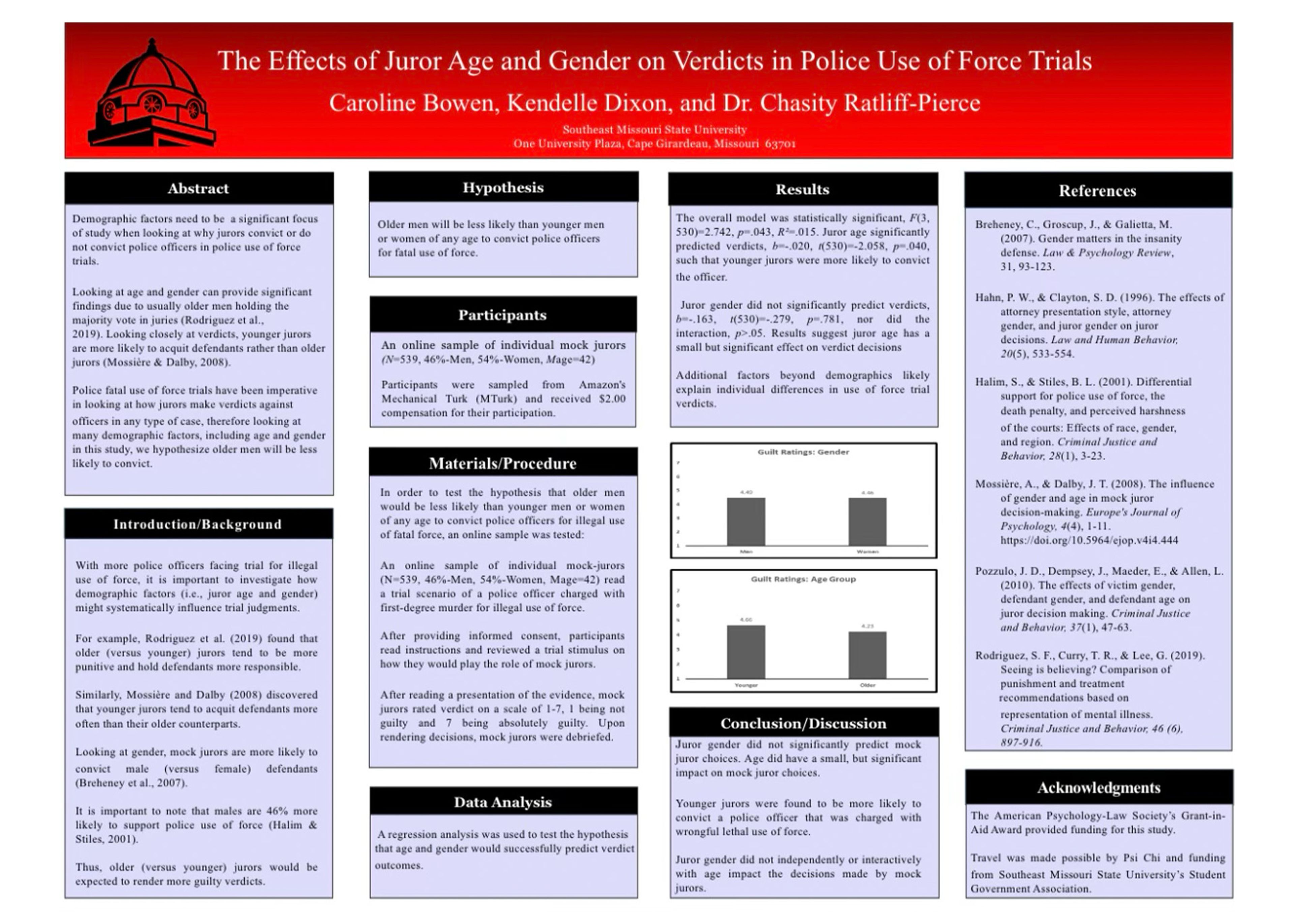
During her time as a Redhawk, she attended the MPA conference in her senior year. She knows firsthand how beneficial the conference can be.
“It’s a professional conference aimed at giving people the experience to present research, to learn about research, and to form different connections with either undergraduates or other folks who may be doing research that they’re interested in learning more about,” Northern said. “It’s a really great opportunity for students to maybe present research at a very friendly and binding conference.”
To truly comprehend the magnitude of this event, first we have to understand the amount of work that goes into not only getting selected to present at the conference, but also how these opportunities arise for each individual.
Instructor of psychology Dr. Chasity Ratliff-Pierce spearheads a research lab known as the Social Psychology and Applied Research Consulting (SPARC) that encourages students to take on research projects. She allows the students access to her data from past research she has done on jury-making decisions, which is her expertise of research.
Each student is then tasked with developing their own hypothesis based on the existing data, and then Ratliff-Pierce assists the students in assessing their own work and helps them submit it for a chance to present at the MPA conference.
However, a spot in the SPARC lab is not always guaranteed. In order to partake in Raliff-Pierce’s research lab, a student must complete their first level of research design class, a two-sequence course focused on research development, with a letter grade of a B or higher. The spots in the lab are also typically reserved for students who aspire to attend graduate school.
Ratliff-Pierce is not required to assist her students in outside research. She does so because she is a researcher herself and she takes advantage of being able to pass her knowledge on to her students, but she also puts in the extra work to make sure that the science of psychology doesn’t get overlooked.
“My goal is ultimately to help them all be good candidates for graduate school. Psychology is a science and that’s something that gets missed,” Ratliff-Pierce said. “The common perspective is that psychology is all about counseling and therapy and all of the other elements of psychology that could get overlooked. I really like to draw the students' attention to the research.”
Last year, the department sent only one student to present at the MPA conference. This was the first student from Southeast to participate in the event in over four years. However, this year is a different story. The department has eight students in the research program, and all eight students were selected to represent SEMO at the conference.
“I was working with eight students in my lab in the fall and I was so proud because every single one of them have their name on a conference submission to MPA, they all decided to try and go for it. So eight students over four presentations,” Ratliff-Pierce said.
For one student, getting the chance to present at MPA means potentially launching her career in the world of psychology.
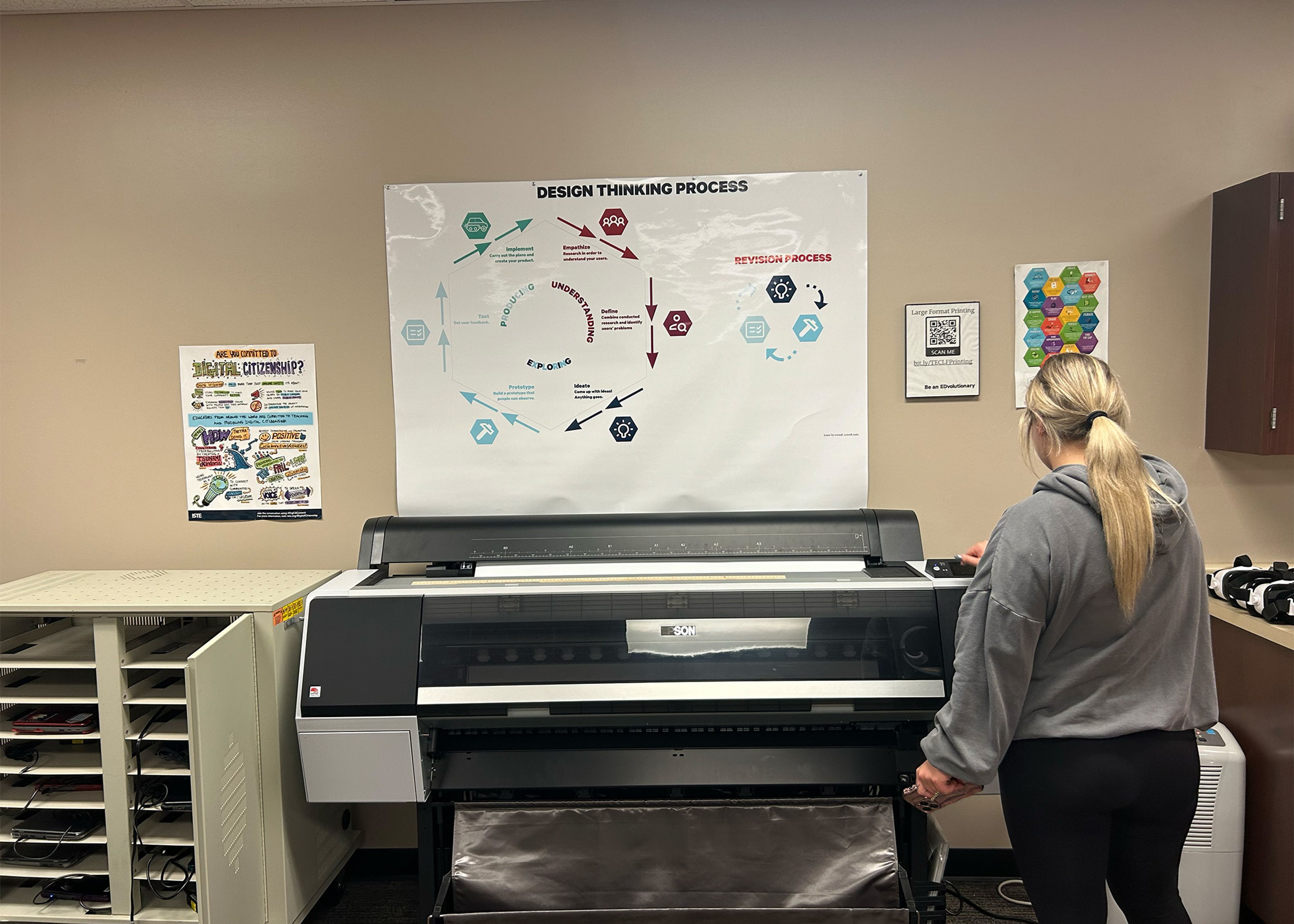
Like many other students who will be attending MPA, Bowen hopes that the opportunity to present her findings will help build credibility to get accepted into graduate school and ultimately be the foundation of a long career in the field of psychology.
“I’m learning how to conduct research in psychology which has always been a goal of mine,” Bowen said. “Once I learned how important research is in obtaining a PhD or going to graduate school in general, I strive to be the best I can when constructing my own research. I would have never imagined that I would make it all the way to MPA just after a year of delving into the world of research in psychology.”
Attending the conference is not free. Students are required to pay for their transportation, housing, meals and the registration fee for the conference itself.
There are numerous resources within the university that students across all areas of study can exhaust to help fund out-of-town professional experiences.
Dr. Heider is not only a professor on campus, but he is also the faculty advisor for Psi Chi, the International Honors Society in Psychology that has helped organize and fund the trip to MPA for years.
“There might be students in our department and others [departments] for that matter who don’t realize that at this university, we have money available for students to travel to things like professional conferences,” Dr. Heider said. You actually have to fill out an application. You don’t just say, ‘Hey, I want some money,’ and they hand you a wad of cash. So there is an application process.”
This application process is done on an individual basis. Each student asking for funding fills out a funding request form detailing individual expenses which is then sent off to the department chair. The department chair then decides how much funding they can provide for the trip.
The funds oftentimes are not enough for everyone. In that case, there are levels that an individual must go through, starting with the Dean’s office. If additional funding is still required, that same application can be sent to the Provost's office.
Hotel accommodations for the trip to MPA are typically handled a bit differently. These applications are submitted as a group of individuals attending the conference. This request is sent to the Student Government Association.
“Student Government is another wonderful source of money where students can request dollars. So on one side of the coin, we’re pushing those individual applications through the [department] dean and Provost offices, and on the other side, we’re pushing a group-based application for hotel rooms through SGA,” Dr. Heider said. “By the time we add up both of those types of applications we usually get most if not all of the cost covered.”
On top of the funding through the university, the psychology club and Psy Chi do fundraising throughout the year to help cover any additional expenses. The clubs hold multiple events including fundraising, social events, and community service to help raise money all while giving back to the community at the same time.
The 96th annual Midwestern Psychology Association conference will take place on April 18-20 in Chicago at the Palmer House Hilton.
